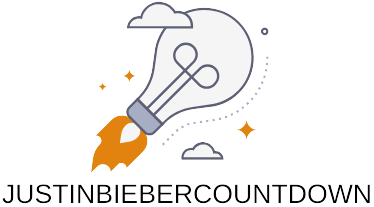Table of Contents
ToggleIn a world where stress and self-doubt can feel like constant companions, mindset coaching techniques offer a lifeline. Imagine transforming that inner critic into your biggest cheerleader. With the right tools, anyone can shift their perspective and unlock their true potential.
Mindset coaching isn’t just for athletes or corporate bigwigs; it’s for anyone ready to kick negativity to the curb and embrace a more positive outlook. Whether it’s visualizations that make you feel like a superhero or reframing challenges as opportunities for growth, these techniques can turn even the toughest days into stepping stones toward success.
Understanding Mindset Coaching Techniques
Mindset coaching techniques focus on developing a constructive mental framework. They guide individuals in reshaping thoughts to enhance personal and professional growth.
Definition of Mindset Coaching
Mindset coaching involves strategies that help individuals shift their perspectives. Coaches and clients work together to identify limiting beliefs and replace them with empowering thoughts. Techniques often include goal setting, visualization exercises, and cognitive restructuring. Creating new thought patterns fosters resilience and adaptability. As a result, people gain confidence in facing challenges and achieving their aspirations.
Importance of Mindset in Personal Development
Mindset plays a crucial role in personal development. A positive mindset encourages growth, resilience, and increased motivation. Individuals with a growth mindset embrace challenges and perceive failures as learning opportunities. This approach leads to improved decision-making and emotional intelligence. Ultimately, cultivating a strong mindset enhances relationships and overall well-being. Prioritizing mental health supports continuous self-improvement and fosters successful outcomes in various life aspects.
Key Techniques in Mindset Coaching

Mindset coaching employs various techniques to foster personal growth and enhance resilience. These methods cultivate a positive and adaptive mindset, transforming challenges into growth opportunities.
Positive Affirmations
Positive affirmations serve as powerful tools to reshape self-perception. This technique involves repeating uplifting statements that promote confidence and self-worth. For example, saying “I am capable” reinforces belief in one’s abilities. Creating specific phrases aligned with personal goals enhances motivation. Focusing on daily affirmations fosters a supportive inner dialogue, gradually diminishing self-doubt. By acknowledging strengths and capabilities, individuals often experience increased optimism and a greater sense of self-efficacy.
Visualization Strategies
Visualization strategies help individuals create clear mental images of their goals. Practicing this technique involves picturing successful outcomes and the steps needed to reach them. Envisioning oneself achieving specific objectives enhances motivation and focus. Many athletes and performers use visualization to prepare for events, significantly improving performance. Engaging multiple senses during this process can deepen the connection to desired outcomes. Consistently applying visualization techniques supports maintaining a positive mindset and encourages action towards personal aspirations.
Cognitive Behavioral Techniques
Cognitive behavioral techniques play a crucial role in shifting limiting beliefs into empowering thoughts. Identifying negative thought patterns is the first step in this process. Once recognized, challenging these thoughts leads to healthier perspectives. For instance, reframing “I can’t do this” into “I can learn how to do this” promotes a growth mindset. Utilizing thought logs to track experiences and reactions helps in developing awareness. Regular application of these techniques strengthens mental resilience, enabling individuals to adapt to challenges effectively.
Implementing Mindset Coaching Techniques
Implementing mindset coaching techniques requires practical steps tailored to individual goals. Setting clear objectives lays the foundation for personal growth and transformation.
Setting Clear Goals
Individuals benefit from specific, measurable goals. Clarity in objectives enhances focus and motivation. For example, instead of saying “I want to be happier,” articulate a goal like “I will practice gratitude daily.” This makes it easier to track progress and fosters accountability. Mindset coaches encourage breaking larger goals into smaller, manageable tasks. Achieving these incremental milestones provides a sense of accomplishment, further motivating individuals to continue their journeys.
Creating an Action Plan
An effective action plan outlines the steps necessary to achieve set goals. Detailing tasks helps individuals visualize their path forward. For instance, those aiming to enhance public speaking skills might include steps like attending workshops, practicing in front of friends, and seeking feedback. Consistent assessments of one’s progress improve adaptability. Revising the action plan as needed ensures that individuals stay aligned with their evolving aspirations. Combining these strategies streamlines the coaching process, ensuring individuals remain engaged and focused on their self-improvement journey.
Measuring the Effectiveness of Mindset Coaching
Measuring the effectiveness of mindset coaching helps individuals assess their growth and make necessary adjustments. Tracking progress plays a vital role in this evaluation.
Tracking Progress
One effective method for tracking progress involves maintaining a journal. Individuals can document their thoughts, feelings, and milestones throughout their coaching journey. Regularly reviewing this journal allows individuals to recognize patterns and celebrate achievements. Another approach includes using measurable indicators, such as completion rates of goals or frequency of positive affirmations. Assessing emotional changes over time can also provide insight into personal growth. Lastly, feedback sessions with a coach help pinpoint areas of improvement and reinforce positive strides.
Knowing When to Adjust Techniques
Identifying when to adjust techniques is essential for sustained growth. Individuals should pay attention to any signs of stagnation in their progress. Feeling overwhelmed or consistently unmotivated might indicate a need for change in strategies. Coaches can assist in this process by regularly checking in and reviewing techniques being utilized. Additionally, incorporating new methods like mindfulness practices can rejuvenate one’s approach. Lastly, maintaining flexibility in mindset coaching ensures individuals adapt to evolving needs and circumstances, fostering continuous improvement.
Embracing mindset coaching techniques opens doors to personal growth and resilience. By shifting perspectives and cultivating empowering thoughts individuals can navigate life’s challenges with renewed confidence. The journey toward a positive mindset is accessible to everyone and involves practical steps that foster clarity and motivation.
Regularly assessing progress and adapting techniques keeps the coaching process dynamic and effective. With commitment and the right strategies individuals can transform their inner dialogue and unlock their true potential. Ultimately mindset coaching serves as a powerful catalyst for continuous self-improvement and enhanced well-being.






